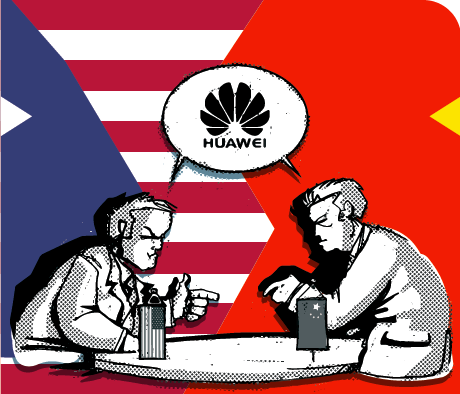
































The geopolitical tensions between the United States and China make a direct impact on Apple, Huawei, and semiconductor firms. The surprise launch of Huawei's Mate 60 Pro, the first fully Chinese-made smartphone capable of tapping into 5G networks, created a buzz in the tech world. This comes at a time when the US has been actively trying to prevent Chinese companies, including Huawei, from gaining access to certain technologies.
Almost at the same time, the Chinese government banned the use of iPhones in government departments and state-owned firms. This decision triggered a drop of 6% of Apple's shares. This decision marks the end of cosy relations between Apple and China.
The ongoing trade tensions between the US and China have hit the semiconductor industry the hardest. Last year, the US restricted the exports of advanced chips and chip-making tools to China, resulting in negative consequences for companies like Nvidia and Micron.
In addition to the impact on individual companies, the US government is reportedly considering restricting China's access to American cloud computing services, which could have far-reaching consequences for major tech giants like Alphabet, Amazon, and Microsoft.
Interestingly, while the US expected Chinese tech titans like Huawei and SMIC to bear the brunt of the trade dispute, they are actually benefiting from the technological nationalism fuelled by geopolitical tensions. Huawei's share of domestic smartphone sales grew from 7% to 13% in the year leading up to the second quarter of 2023, according to IDC. The successful launch of the Mate 60 Pro, along with SMIC's innovative responses to US controls, led to a 10% surge in the chipmaker's share price.
The US-China trade tensions are having far-reaching effects on the technology industry. Huawei and Apple are facing challenges, albeit in different ways, and semiconductor firms are grappling with trade controls and retaliatory measures. American makers of chipmaking tools are experiencing a mixed impact, while the potential restriction of China's access to American cloud computing services may affect major tech giants. Despite setbacks, Huawei and other Chinese companies are capitalizing on the geopolitical strife, exhibiting growth in domestic sales and innovative responses. The situation remains uncertain, with the potential for further escalations and consequences for the technology market as a whole.
 Tags chauds:
5G
Tags chauds:
5G